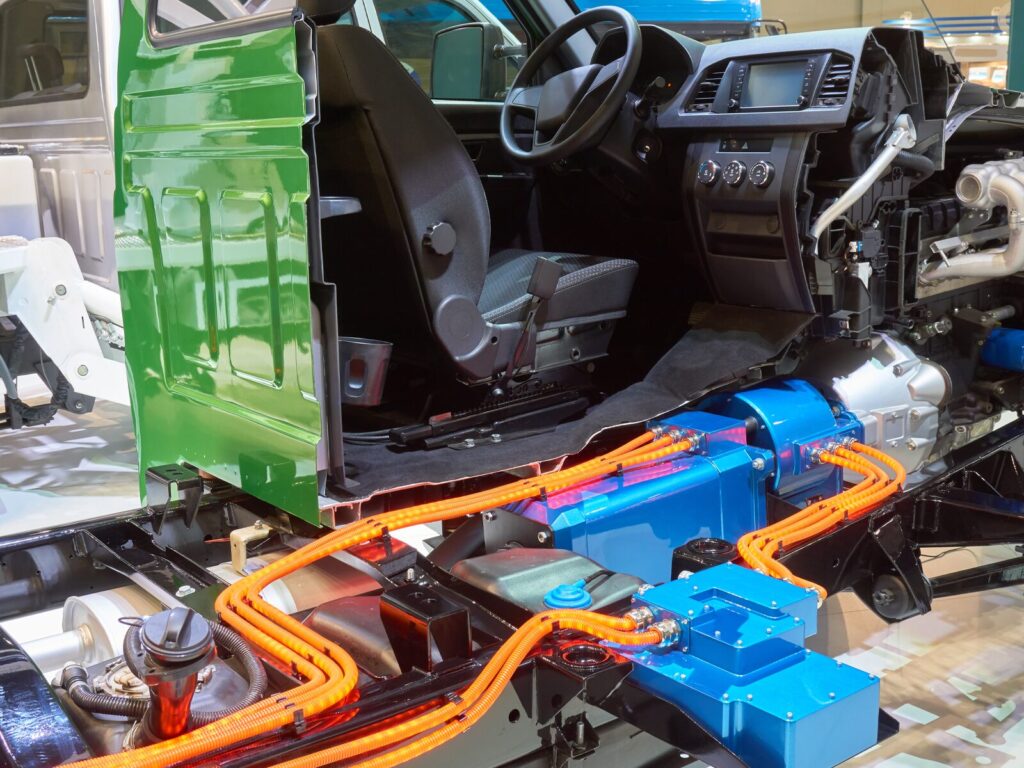The Applied Technical Services Family of Companies (FoC) supports the electric vehicle (EV) industry with SAE J1798 performance rating of EV battery modules testing. As more automotive companies create electric vehicles, we provide standards-based testing to assess and verify battery designs.
Comprehensive battery testing from a qualified lab helps manufacturers ensure a battery module is ready for the next stage of development. After testing, manufacturers can determine if the battery needs design changes to comply with the desired level of quality and performance.
SAE J1798 Performance Rating Tests
SAE J1798 outlines several procedures for testing and verifying the performance of electric vehicle (EV) battery modules. The standard includes electrical tests designed to anticipate operating requirements. Our clients can select the tests relevant to their needs to explore a battery module’s qualities and limits in a controlled environment.
Static Capacity Test
The SAE J12798 standard delineates two methods for a static capacity test to investigate the impact of a constant current or power on battery capacity. The constant current method explores how discharge current and temperature impact the ampere-hour and energy capacity. Meanwhile, the constant power method studies how various levels of discharge power and temperature affect the battery’s ampere-hour and energy capacity.
Dynamic Capacity Test
Manufacturers may request a dynamic capacity test to study how the battery fares when subjected to changing discharge conditions. The dynamic discharges simulate the traffic, parking, and various temperatures experienced in an urban environment.
Charge Retention Test
Over time, EV batteries lose power and eventually degrade beyond use. ATS FoC experts can perform a charge retention test to study how the battery’s energy storage changes with each recharge. We can charge the battery to the manufacturer’s recommendations and test samples under controlled temperatures and stand times for comparison.
Charge Acceptance Test
A charge acceptance test establishes how the module charges at various temperatures. Module charge acceptance affects other engine components, such as the vehicle charger and thermal management systems. Manufacturers can use this test to determine how many modules are needed to fully charge the battery pack at a given temperature or charging time.
Peak Power Capability Test
We can provide a peak power capability test to calculate how well the battery module performs past its usable discharge capacity. The peak power capability calculations involve resistance, voltage, current, and capacity measurements when the battery is discharged at various amounts over short intervals.
Battery Testing Lab
ATS operates an ISO/IEC 17025:2017-accredited lab capable of testing battery safety and performance to help manufacturers optimize battery design and keep up with leaps in the electric vehicle industry. Our experts have the experience and qualifications to safely operate powerful equipment capable of reaching 750 V and 1040 A.
If we suspect a battery test may create a dangerous reaction, our experts conduct the procedure in our Hazard Containment Room (HCR). The custom design contains explosions, douses fires, and filters toxic gases produced during battery testing.
Get to Know the ATS FoC
The ATS Family of Companies consists of consulting engineering, calibration, inspection, and testing firms that provide advanced testing solutions for clients throughout the country and abroad. We provide high-quality customer service, testing accuracy, and analysis. Our collective expertise supports a wide range of industries, including aerospace, automotive, power generation, and renewable energy.
We are accredited in several IEC/ISO 17025 test and calibration areas, and our experts can approach our clients’ needs from multiple angles:
Contact Us
Call +1 (888) 287-5227 to learn more about performance testing EV battery modules, or complete the form on this page to schedule a test.



